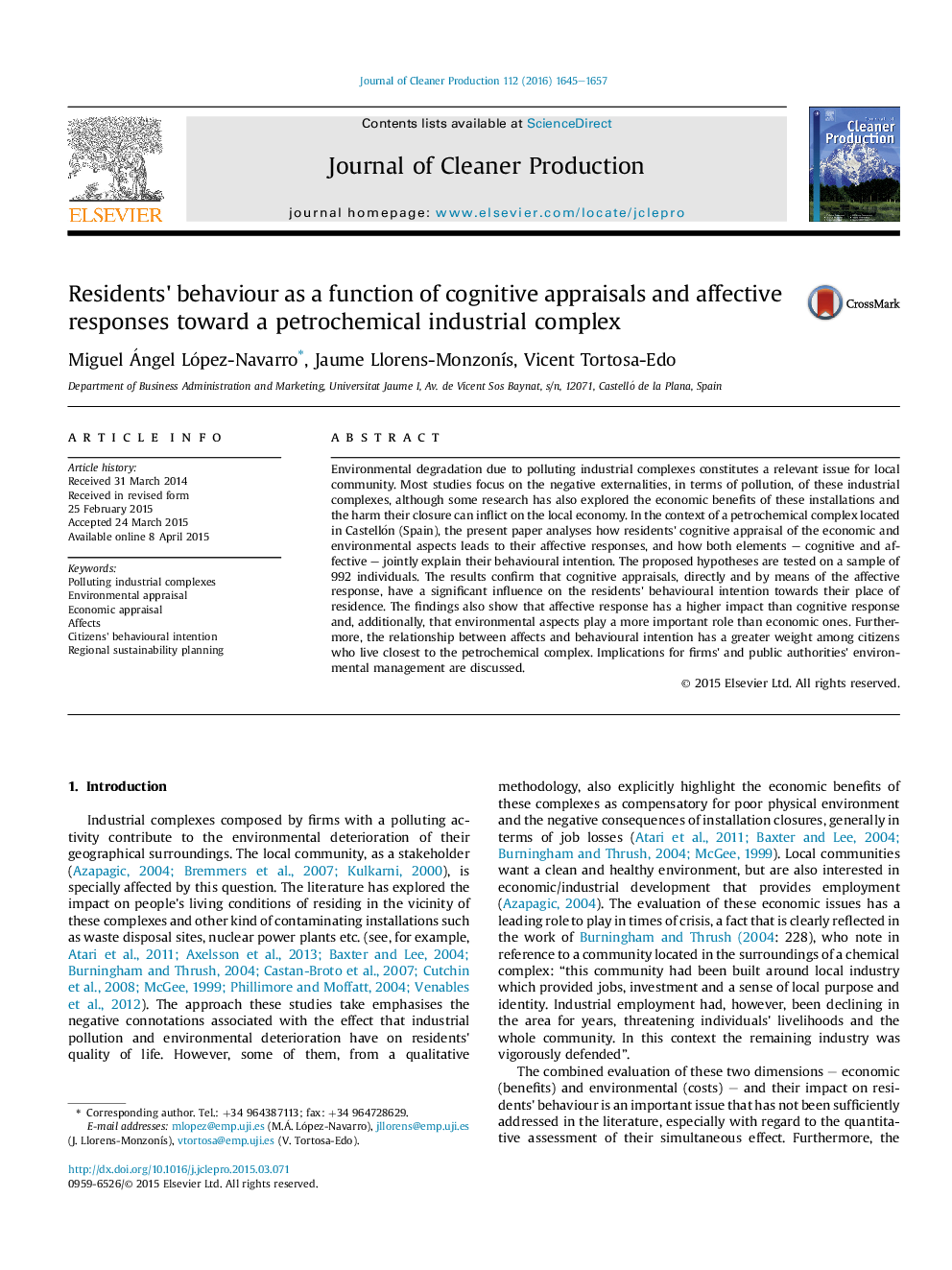| Article ID | Journal | Published Year | Pages | File Type |
|---|---|---|---|---|
| 1744337 | Journal of Cleaner Production | 2016 | 13 Pages |
Environmental degradation due to polluting industrial complexes constitutes a relevant issue for local community. Most studies focus on the negative externalities, in terms of pollution, of these industrial complexes, although some research has also explored the economic benefits of these installations and the harm their closure can inflict on the local economy. In the context of a petrochemical complex located in Castellón (Spain), the present paper analyses how residents' cognitive appraisal of the economic and environmental aspects leads to their affective responses, and how both elements – cognitive and affective – jointly explain their behavioural intention. The proposed hypotheses are tested on a sample of 992 individuals. The results confirm that cognitive appraisals, directly and by means of the affective response, have a significant influence on the residents' behavioural intention towards their place of residence. The findings also show that affective response has a higher impact than cognitive response and, additionally, that environmental aspects play a more important role than economic ones. Furthermore, the relationship between affects and behavioural intention has a greater weight among citizens who live closest to the petrochemical complex. Implications for firms' and public authorities' environmental management are discussed.
